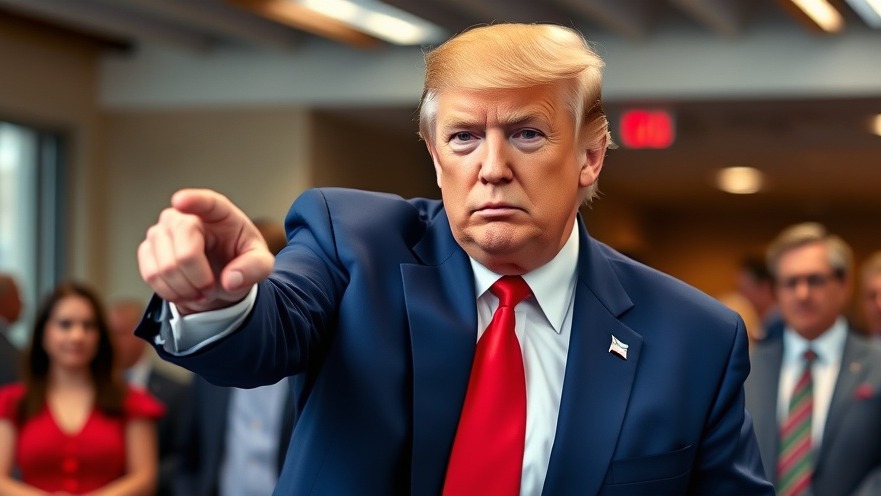
The Limits of Emergency Powers in U.S. Politics
In a landmark decision, a federal appeals court has ruled against President Trump's attempt to impose tariffs through emergency powers. This ruling not only has significant implications for economic policy but also raises crucial questions about the extent to which emergency powers can be used to bypass regular legislative processes. The case serves as a relevant opportunity to examine the balance of power in the federal government and the justifications for extraordinary measures.
Historical Context: A Precedent for Emergency Powers
The invocation of emergency powers is not new in American politics, with precedents dating back centuries. However, modern examples, particularly under President Trump, illustrate how such powers can lead to contentious legal battles. Understanding the historical background provides valuable insights into how emergency powers were originally conceived to address national crises, without undermining the democratic process.
The Economic Impacts: Tariffs and Their Consequences
Tariffs have long been a contentious tool used by presidents to influence trade relations and protect domestic industries. However, the recent ruling against Trump's tariffs highlights the fragility of such actions when challenged legally. Economically, tariffs can have ripple effects, impacting prices for consumers and the competitiveness of American goods abroad. This ruling invites scrutiny regarding both the justification for tariffs invoked in emergencies and their subsequent economic impact.
Diverse Perspectives: Supporters vs. Critics of Emergency Powers
The use of emergency powers generates a spectrum of reaction from various stakeholders. Supporters argue that such powers are vital for swift action in times of national crisis, ensuring that the government can respond effectively without lengthy legislative processes. Conversely, critics express concerns that the misuse of these powers can lead to authoritarian tendencies and undermine checks and balances. Engaging with both sides allows for a more rounded understanding of this pivotal issue.
What This Means for Future Administrations
The implications of the recent court ruling extend beyond the Trump administration. Future presidents may find themselves scrutinizing the necessity and legality of emergency powers before resorting to them. This sets a precedent for a more cautious approach to invoking such powers, potentially leading to a reevaluation of policies that prioritize expediency over democratic accountability.
Actionable Insights: Navigating Emergency Powers
For citizens wanting to understand their government better, it is crucial to engage with the topic of emergency powers. Being informed equips individuals to participate in the democratic process, advocating for transparency and accountability in governance. Increased civic engagement can spur necessary debates about the parameters of power in crisis situations.
Conclusion: A Call for Clarity and Accountability
As the dispute over emergency powers continues to unfold, it's essential to remain vigilant and informed. The balance between efficiency in governance and the protection of democratic principles is delicate. This ruling serves as a reminder of the importance of checks and balances, inviting not just lawmakers, but the entire public, to engage in discussions about how power should be wielded in crises.
 Add Element
Add Element  Add Row
Add Row 



Write A Comment